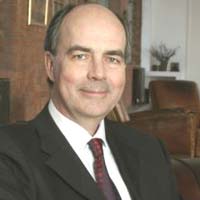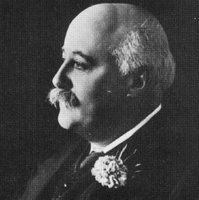 Lord Saatchi
Lord Saatchi says not, saying that Margaret Thatcher disproved the "dinner party myth."
Iain Dale disagrees, arguing that the 1979 manifesto on which Thatcher won was much more centrist than is generally supposed.
So who's right? Well, I'm going to sit on the fence for the time being and say I have some sympathy with both points of view.
In his pamphlet published yesterday, In Praise of Ideology, Lord Saatchi said people were losing faith in politics because there was so little difference between the parties. In the light of the declining turnout at recent elections, it is very hard to argue against this standpoint.
"The pragmatism of the centre ground turns politics into a commodity market - because pragmatism leads to opportunism, which leads to cynicism. People can spot a left/right 'positioning exercise' a mile off. The motive for these moves is too transparent. Voters always suspected that politicians would 'say anything to get elected'. Now they know it's true."On the other hand, I do agree with Dale when he says that David Cameron needs to continue his move towards the centre ground, because of the particular electoral circustamces in which his party now finds itself.
"You cannot win purely with the support of your own core voters. Instead you have to appeal to a wider body. This is the lesson of the last 10 years in which the Conservatives have languished in opposition. Continually banging on about the same old message in the same old way is not going to appeal to those who find themselves disillusioned with politics and politicians."Historically speaking, of course, the truth about elections is much more complex. While it is true to say that elections are not won from extreme positions, as Labour found in 1983 and the Tories in 2001, that is not the same as saying that the party with the most "centrist" position invariably wins.
If it was, I suspect the Liberals and their successor parties might have had a bit more success than they have had over the past 100 years!
My own view is that a political leader needs both the Saatchi approach and the Dale approach if you like, a clear ideology tempered by a willingness to compromise when necessary.
The lack of an ideological compass won't necessarily prevent David Cameron from becoming Prime Minister, as Tony Blair discovered. But it will prevent him from becoming a good one.

 "There are now 57 million blogs worldwide and mainstream media have jumped on the bandwagon, often with no more thought about why they were doing it.
"There are now 57 million blogs worldwide and mainstream media have jumped on the bandwagon, often with no more thought about why they were doing it.



